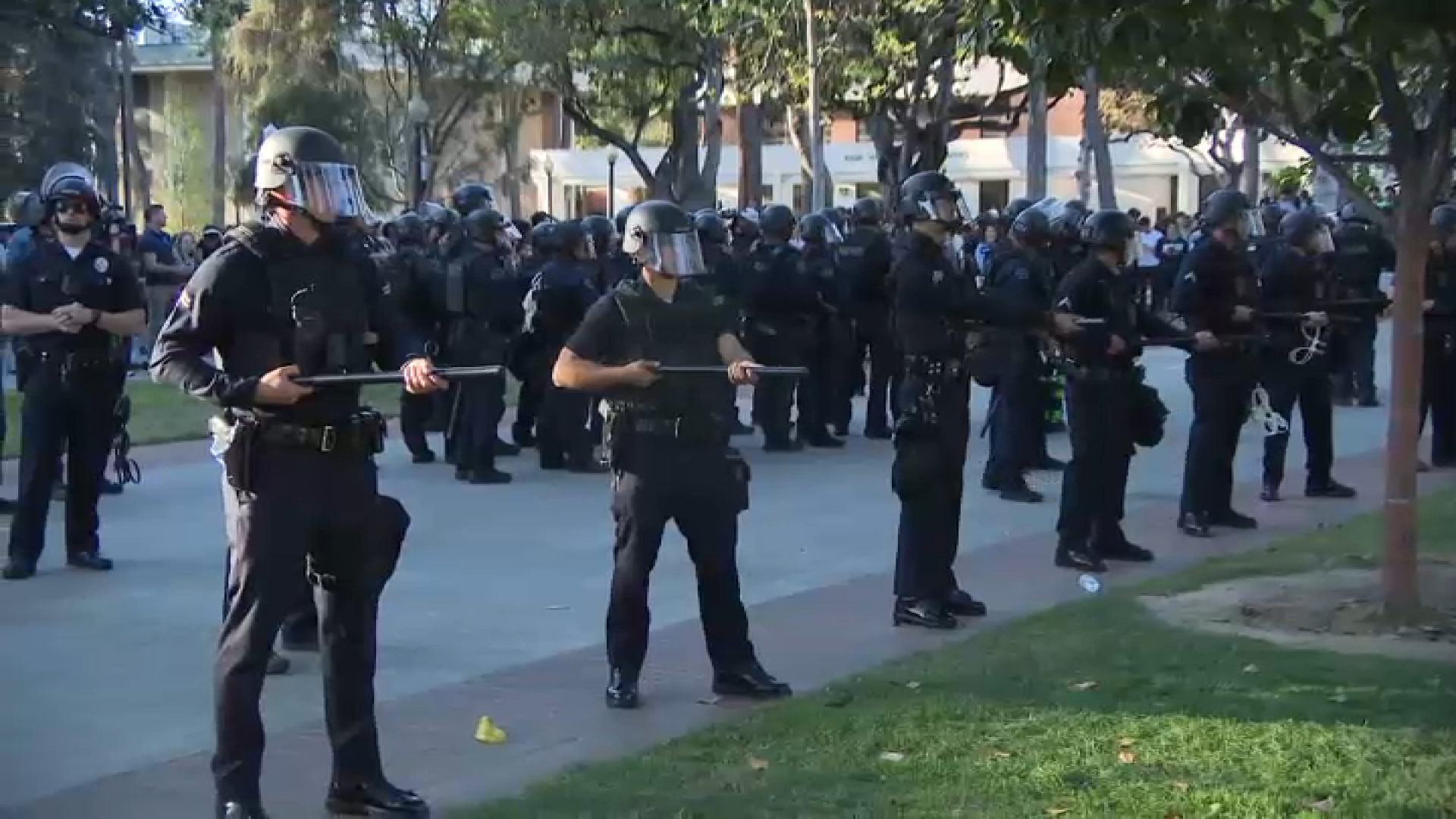An agreement was reached during a federal court hearing Saturday to on a phased approach to transition about 700 homeless people moved from the Santa Ana Riverbed in Anaheim from motels to shelters and other programs, officials said.
Under the agreement, transients who were given 30-day motel and food vouchers that expire within the week will be relocated in groups of about 100 per day, Anaheim spokesman Mark Lyster told City News Service. Those awaiting relocation will remain in their motels. He called it "Step Two."
U.S. District Judge David O. Carter especially wanted homeless women to have safe placements including WISEPlace, a Santa Ana-based program for women, Lyster said. "We want to be sure there is a clear track to get people someplace."
Other options besides shelters include medical facilities and residential drug treatment for those in need, he said.
"They definitely won't be coming back to the riverbed,'' Lyster said.
A remediation project was underway at the site of the former homeless encampment and it was off-limits to everyone, including recreational users.
The meeting between Judge Carter, the cities, Orange County and attorneys for the homeless also resulted in a commitment to relocate the homeless people who live in the Santa Ana Civic Center to shelters and programs, although a date certain has not been set, he said.
News
Top news of the day
"It's a long process," Lyster said. "There is no magic wand."
The Orange County Board of Supervisors was to meet Monday to discuss long-term solutions, he said.
On Thursday, attorneys representing transients moved off the riverbed filed court papers asking for an extension of the motel stays, arguing that some, including a pregnant woman, are being shuffled off to inappropriate shelters.
The transients who were given 30-day motel and food vouchers were notified Thursday they must be moved to other shelters as soon as early next week, attorneys for the homeless contended in legal filings.
In response, U.S. District Judge David O. Carter scheduled the rare Saturday morning court hearing. A hearing on the long-term plans for the riverbed transients was originally scheduled for April 3, but Carter moved it up to Saturday over concerns for the "potentially rushed displacement" of the homeless.
County officials said they have enough beds in shelters and other facilities to move the transients staying at motels. County supervisors this week allocated an additional $2 million for the riverbed transients.
But Carter wants assurances the county has resources to find beds for the transients when they leave the motels. Carter asked representatives from every Orange County city to attend the Saturday hearing.
Attorneys for the homeless argued in Thursday's court filing that several transients were falsely told they had been denied further services or were being sent to shelters they deemed inappropriate.
One of those transients, Andrea Phipps, is pregnant and depends on help from her "partner," according to the filing. She was told she would be moved Monday morning to a mental health facility.
"She does not need treatment for mental illness," according to the filing. "Moreover, she has not been told where the placement is and whether her partner, the father of her child, will be placed with her. Ms. Phipps' pregnancy involved medical complications and she depends upon her partner to help her."
The plaintiffs also allege that one transient could not get through to social workers the county hired from City Net, and when she finally went to a City Net meeting she was told she was not one of their clients as the county had informed her, according to the court document.
Orange County Board Chairman Andrew Do disputed claims the county may not have enough shelter for transients when they segue out of the motels.
Do said the number of transients in motels is likely less than 700 because some homeless people got in line twice for extra rooms. He estimated on the "high end" there may be 650 people in motels, and deducting 120 people who refused service, the county would need shelter for 530, he said.
"The county has at least that many beds in order to accommodate 530 people," Do said.
Also, he noted, the county has allocated the $2 million to pay for more beds if necessary.
"We have no fear we'll have an adequate number of beds for people transitioning out of motels," Do said.
For those transients who refuse service, the county will have social workers and other officials available to help them anyway.



